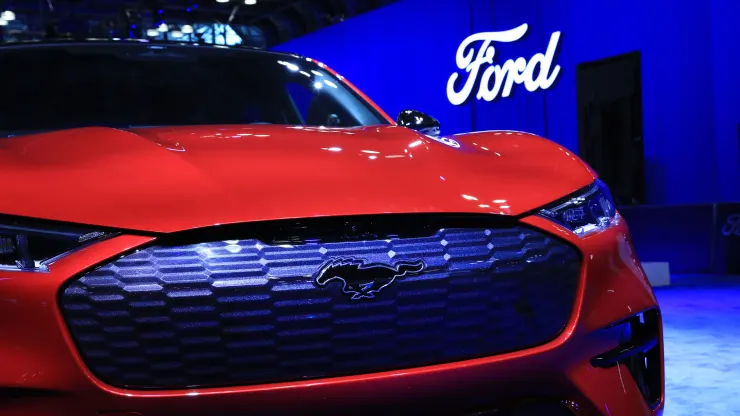DETROIT — Ford Motor on Thursday raised its 2023 guidance after second-quarter earnings significantly beat Wall Street expectations, boosted by strong pricing and demand for the automaker’s traditional vehicles even as adoption of EVs took hold slower than the company expected.
Ford increased its full-year adjusted earnings forecast to a range of between $11 billion and $12 billion, up from a prior forecast $9 billion and $11 billion. It also upped its expected adjusted free cash flow to a range of $6.5 billion to $7 billion from earlier guidance of $6 billion.
There was pressure on Ford to raise its guidance after crosstown rival General Motors raised its yearly guidance Tuesday for the second time this year.
Ford finance chief John Lawler said vehicle demand and pricing were “holding up” better than the company anticipated at the beginning of the year for its traditional businesses. However, he said, electric vehicle adoption is taking place more slowly than the company expected, in part because of higher costs.
Ford’s traditional business operations, known as Ford Blue, earned $2.31 billion during the quarter, while it’s Ford Pro commercial business earned $2.39 billion. Its “Model e” electric vehicle unit lost $1.08 billion from April through June.
The company said it now expects to lose $4.5 billion on the EV business this year, widening losses from roughly $3 billion a year earlier.
Here’s how Ford did during the second quarter, compared with what Wall Street expected based on average estimates compiled by Refinitiv:
- Adjusted earnings per share: 72 cents vs. 55 cents expected
- Automotive revenue: $42.43 billion vs. $40.38 billion expected
The automaker reported net income of $1.92 billion, or 47 cents per share, substantially up from a year earlier when it earned $667 million, or 16 cents per share.
Ford said its adjusted earnings before interest and tax, or adjusted EBIT, jumped to $3.79 billion, up from $3.72 billion a year ago. Its adjusted margin dropped to 8.4%, from from 9.3% in the year-ago period, amid increased production and sales.
Total revenue for the quarter was $45 billion, up 12% from $40.2 billion a year earlier.
It’s the second quarterly report in which the automaker broke down its financial results by business unit instead of by region.

